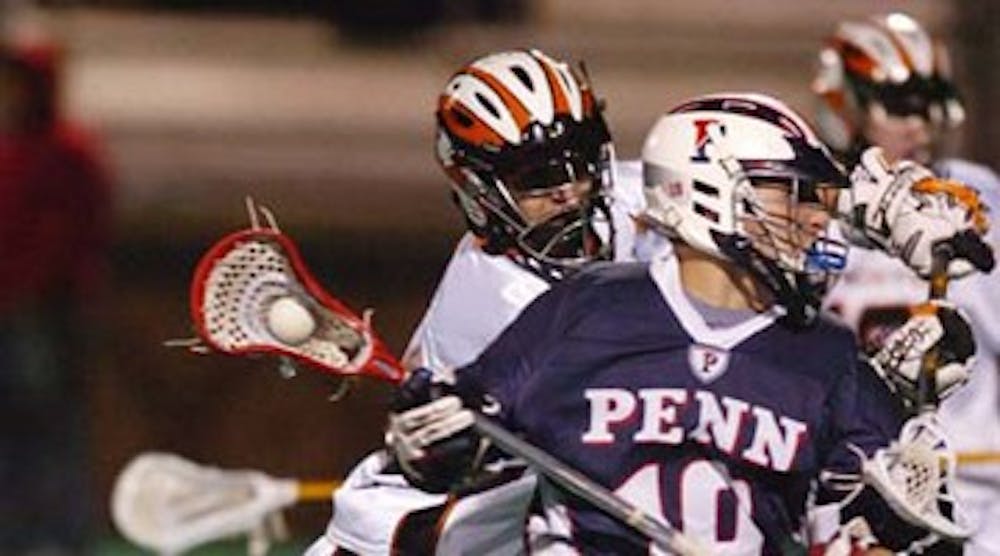
Collegiate men's lacrosse games last 60 minutes. Too bad for the Quakers, who may be lobbying for a rule change after yet another second-half collapse.
Tuesday night at Princeton, Penn went into halftime within shooting distance of the Tigers, down a respectable 6-4. But just 15 minutes later, the Red and Blue had fallen into a seven-goal deficit.
Princeton then threw down the dagger in the fourth quarter, responding to Penn's only goal of the second half with three more of its own.
"When we went into halftime, we had some momentum going - the guys were pretty fired up," junior captain Craig Andrzejewski said. "But we came out flat for some reason in the beginning of the second half, let them get a couple of quick goals. It really killed our momentum for the game."
Last year's game against the Tigers was the same story: Penn went into the half two goals down, only to let Princeton pull away easily in the final two quarters.
This year's contest was emblematic of the team's trends thus far. Freshmen Al Kohart and Corey Winkoff excelled, while the rest of the Red and Blue could not get their strong shots past an elite goaltender. This time, it was All-American senior Alex Hewit, who made 14 saves and held Andrzejewski without a point for the first time in 25 games.
But the most troubling trend has been the Quakers' string of second-half collapses. They have been outscored by their opponents by nine goals in the second half, including a devastating 26-13 disadvantage in fourth quarter scores. That's their worst margin, by far, of any quarter.
The offense averages under nine shots in the fourth quarter, the fewest of all four quarters. Even more striking, fewer than five of those are on target.
Andrzejewski believes that, at least when the Quakers are trying to recover from a large deficit, their collective decision-making may worsen.
"Once we were down by three, four goals you start getting frustrated and rushing shots," he said. "Any time you're down by that much, you're not going to run the offense like you normally would."
The troubles have come without a pattern. In some games, including Saturday's overtime win over Dartmouth, the Quakers took large leads into the break only to see them squandered in the final two periods. Against Cornell on
March 29, the Quakers watched a big deficit turn into an embarrassing one, and against Princeton, Penn let a competitive game become a blowout.
"It's been a different situation every time," coach Brian Voelker said. "I'm not really sure that there's a formula of stuff that we're doing [wrong]."
Voelker added that injuries to key members of the roster may be hampering the team's depth, a problem which manifests itself most often late in games.
Ultimately, though, the coaching staff members are left scratching their heads when it comes to figuring out what exactly is behind the team's second-half collapses.
And though the goals of an Ivy League championship or an NCAA Tournament berth are quickly becoming improbable, the Quakers must figure out how to close out games - if not for this year, then for next.
The Daily Pennsylvanian is an independent, student-run newspaper. Please consider making a donation to support the coverage that shapes the University. Your generosity ensures a future of strong journalism at Penn.
DonatePlease note All comments are eligible for publication in The Daily Pennsylvanian.








